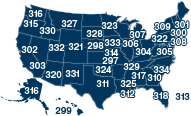Frequently Asked Questions of the Postal Service Reform Act
I’m a current postal employee with no plans to retire anytime soon. How will the bill affect me?
Starting January 1, 2025, you’ll be placed into a new postal-only plan within FEHBP. It will be regulated and run in the same way current FEHBP plans are and major plans now available will still be offered. Benefits would remain the same, and the premiums would be significantly reduced because postal participants would be placed in a separate risk pool with new rules related to Medicare enrollment.
I’m planning on retiring in a few years. Will I have to enroll in Medicare?
If you are a current employee under the age of 64 as of January 1, 2025, when you are BOTH retired AND 65 years of age, you will be required to enroll in Medicare.
I’m a current retiree. What will my health plan look like?
If you are already enrolled in Medicare, nothing will change. If you did not choose Medicare when eligible and stayed with FEHBP, you can either choose to remain in the postal-only FEHBP or you can sign up for Medicare during the special enrollment period. Additionally, if you are a current retiree but not yet Medicare eligible, you will not be forced into Medicare early.
I'm a current retiree and previously opted not to enroll in Medicare, but I've changed my mind. Will there be a late enrollment fee?
The standard penalty for late enrollment is a 10% increase for each year after age 65, however, the bill includes a one-time opportunity for post-age-65 annuitants who chose not to enroll in Medicare Part B when first eligible, with no late enrollment penalty.
I’m a current postal employee but I’m over the age of 65. Will I have to enroll in Medicare?
No, you can remain in the postal-only FEHBP. You will enroll in Medicare once you retire.
What happens when I enroll in Medicare?
Medicare will be your primary provider, while the postal-only FEHBP will be secondary.
I’m in TRICARE. Will I have to sign up for Medicare?
No, those enrolled in TRICARE and Indian Health Services will not have to enroll in Medicare. Additionally, those who live outside of the United States will not have to enroll in Medicare.
What about my spouse who’s covered by my healthcare?
The same regulations will apply to them.
Is this a bailout for the Postal Service?
No. Postal employees have always contributed to Medicare benefits; employees have paid $34 billion to Medicare since 1983, but have not fully taken advantage of the program. Currently about 80% of postal retirees already use Medicare.
Who supported this?
NPMHU along with the other postal unions, postal management, as well as the PMG and BOG supported this legislation. It passed in the House by a vote of 342-92 and in the Senate by a vote of 79-19.
This is really confusing.
In order to make sure postal employees and annuitants are prepared, USPS and OPM will offer further educational guidance on what can be expected when enrolled in Medicare and how to do so when eligibility requirements are met.
